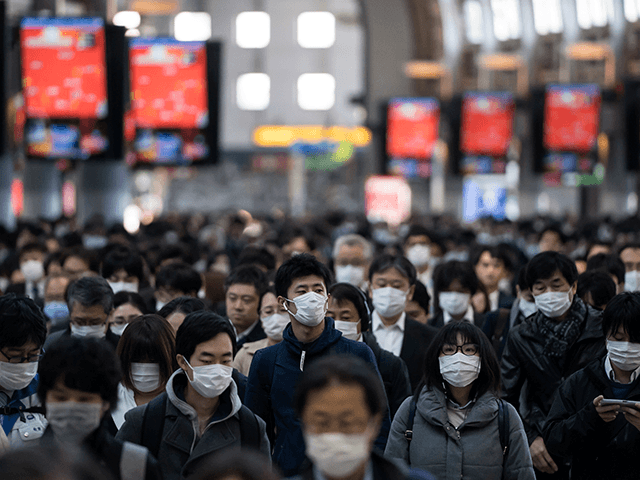Tokyo’s population decreased in 2021 for the first time in 26 years due, in part, to increased remote work availability during the Chinese coronavirus pandemic that encouraged people to leave the crowded metropolis, Bloomberg reported Monday.
Tokyo’s estimated population fell to 13,988,129 on January 1, 2022, marking a contraction of 48,592 from the previous year, the Tokyo Metropolitan Government announced on January 31.
“The population in central Tokyo’s 23 wards fell 49,891 from a year earlier, with only Chuo, Taito, and Sumida wards observing gains, while that of cities excluding those in rural areas increased 2,089,” Kyodo News reported on Monday.
“The capital’s total population also declined for the eighth consecutive month since June 2021, down 9,872 from the previous month,” according to the Tokyo-based news agency.
A handful of Japanese companies traditionally based on in-person work in Tokyo changed their policies over the past two years to help accommodate a global shift toward remote work, Bloomberg observed on January 31. The businesses included Pasona Group Inc., Japan’s second-largest staffing company, and Yahoo Japan Corp., an internet company.
Pasona Group Inc. revealed in 2020 plans to “decentralize its headquarter functions away from Tokyo,” Bloomberg recalled on Monday.
Tokyo's population shrank last year for the first time in a quarter century, as more businesses turned to remote work amid the pandemic https://t.co/cjRcQymWWP
— Bloomberg (@business) January 31, 2022
Yahoo Japan Corp. “introduced full-scale telework in 2020 amid the coronavirus pandemic. As of January 2022, about 90% of the company’s approximately 8,000 employees are working remotely,” the Mainichi Shimbun, a Japanese newspaper, reported on January 13.
The internet company said on January 12 it would allow its employees to live anywhere in Japan starting April 1, 2022. The announcement ended a previous Yahoo Japan Corp. policy which “limited its staff members’ living locations to areas from which they could travel to the office and arrive by 11 a.m. when instructed,” according to the Mainichi Shimbun.
Yahoo Japan Corp. said it would eliminate its upper limit for compensation of employees’ one-way travel expenses to support the new scheme and “ease the restriction on means of commuting, letting employees commute by plane if the cost is within 150,000 yen [1,307.39 USD] per month.”
Bloomberg recently interviewed a woman named Megu Tsuchimura who previously lived and worked in Tokyo but decided to leave the city after remote work made the move possible.
“Last summer, the 28-year-old moved backed to her hometown, a village near the Japan Sea, after switching to an environmentally-focused startup that promised more flexibility,” the business-focused media outlet detailed.
“It’s another business headquartered in Tokyo, but this time remote work is allowed,” Bloomberg noted of the woman’s employer.
“I was stressed-out, commuting on a jam-packed train in the middle of the pandemic,” Megu recalled of her daily experience prior to the move.
“I feel a lot happier now,” she said of her new life outside Tokyo.

COMMENTS
Please let us know if you're having issues with commenting.